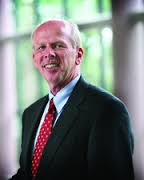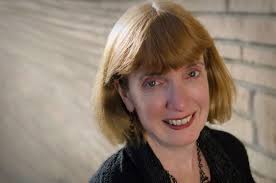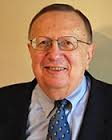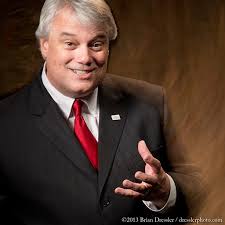Only one event at the seminal 21CMposium at DePauw University (see my last post) was in standard conference format — a panel discussion.
That was deliberate, and was one reason the symposium was so pwerful. It presented conclusions, inspirations, action points. Rather than pondering big questions and not finding any answers.
But that one panel…
…was in a quiet way sensational. When Sarah Robinson (see my post) gave her presentation — about how she’d made a joyful career they didn’t prepare her for when she was a student — she was wearing hightops. Here I am, this is me.
The panel, by constrast, offers what seemed to be the suits. Current and former conservatory heads, asking “Is there still room for curiosity in music training?”
But they didn’t talk like suits, and so in a way this was the most subversive moment of the conference. If you ask Mike Block (last post) to talk, you know he won’t preach the conservatory gospel.
And on the panel, Tayloe Harding, Dean of the University of South Carolina School of Music, is known as an apostle of change.
But how about David Myers…
 …former Director of the University of Minnesota School of Music? A new name to me. Here’s some of what he said (from my notes; apologies to Myers and to the others if I got any of what they said wrong):
…former Director of the University of Minnesota School of Music? A new name to me. Here’s some of what he said (from my notes; apologies to Myers and to the others if I got any of what they said wrong):
I learned that black students make a distinction between music you study in school vs real music.
What we are escaping is not classical music, but the trappings and conventions of it.
We must be listening to people from other music traditions, on an equal basis with classical music. Many students already do this, are already challenging the view that classical music is superior.
Performance shouldn’t be dependent on a conductor, but instead should flow from the performers’ own curiosity.
Classical music shouldn’t be s spectator sport, even with some of the current performance innovations Instead it should be process of cocreating music.
And here’s Mary Ellen Poole…
 …Director of the Butler School of Music of the University of Texas.
…Director of the Butler School of Music of the University of Texas.
We at conservatories haven’t talked about the way immersion in other [musical] languages can make us better at speaking our own.
She gave an example, from one of the conference workshops: How the vocal ensemble Roomful of Teeth learned to sing in nonwestern ways, by bringing in teachers from other musical cultures.
The faculty doesn’t believe how true these things are, until they hear then from the students.
 The panel chair — Bernie Dobroski, former dean of the Bienen School of Music at Northwestern University — talked in the same vein, though I didn’t take notes. (Which regret! Apologies, Bernie.)
The panel chair — Bernie Dobroski, former dean of the Bienen School of Music at Northwestern University — talked in the same vein, though I didn’t take notes. (Which regret! Apologies, Bernie.)
And here’s Tayloe:
Students need a personal definition of success. Our curricula aren’t designed to teach that. We set standards that define what kind of success is expected.. — for instance, the ability to identify an augmented sixth chord.
 We have to help students discover what they do well, and what they want to do. We have to them find the world’s great need for what they do.
We have to help students discover what they do well, and what they want to do. We have to them find the world’s great need for what they do.
We have to inspire curiosity. We think curiosity is about things. But it’s about yourself. Not just about the curriculum. An action point: We have to find opportunities to help students be curious beyond what they learn at music school.
We have to nurture creativity. Encourage students to take bold personal choices and take risks. Encourage their imagination. Change recitals, juries, and private lessons to make them more creative.
Groups like Decoda, Roomful of Teeth, and Fifth House [all of which present classical music in new ways, and which all presented workshops at the conference] should be our models of success. We should make learning from such models the daily work of our students.
Powerful stuff. When leaders of established schools start talking this way, we’re heading toward a tipping point.
And about conference formats…
Early on, when the conference was being planned and I was invited to speak, I was told they didn’t want the standard format. Panels, panels, panels, no inspiration, nobody ready for action.
And they acted on that. I remember saying very early on that (in my view) the way to plan a conference — if you want it to inspire change — is to decide what you want to say, and invite speakers who’ll say it. Rather than have panels ponder many things that might be said.
I’d make that suggestion to anyone, but I don’t think I needed to say it to DePauw. They were thinking that way already.
Which is why they’re emerging as national leaders of classical music change.
